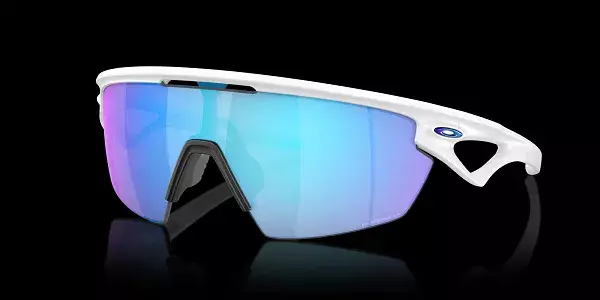In an exciting development for the tech landscape, Meta is gearing up to launch a new iteration of its augmented reality (AR) glasses, indicating a strong commitment to the world of wearable technology. With its sights set on athletes, this new version aims to enhance performance tracking and feedback mechanisms, potentially reshaping how athletes approach training and competition. Key reports from Bloomberg have illuminated these plans, revealing a collaboration with Oakley, a sports eyewear giant, to create a model inspired by their “Sphaera” sunglasses. This strategic alliance represents not just an expansion of Meta’s product line, but also a significant leveraging of Oakley’s established brand in the athletic segment.
Integration and Innovation with Oakley
The partnership with Oakley is a smart move for Meta, as it grants them access to premium eyewear designs and styles that could appeal to a wide array of consumers beyond just serious athletes. With Oakley under the umbrella of EssilorLuxottica—also the parent company of Ray-Ban—Meta is poised to integrate its innovative AR technology with iconic frames that consumers already trust. The upcoming athletic sunglasses are planned to feature a lightweight design with a singular camera situated at the center, aimed at optimizing both functionality and comfort during use. This choice demonstrates a thoughtful consideration toward usability that could bolster user adoption.
In addition, new developments within Meta’s Ray-Ban Stories line are anticipated to enhance user engagement by incorporating heads-up display capabilities. Users will be able to receive notifications and view photos through a small screen integrated into their glasses, presenting information discreetly at the lower periphery of their vision. While this marks a significant step forward, experts point out that the technology will still be limited, as it does not yet support fully-fledged augmented reality experiences. However, it sets the stage for more ambitious launches in the near future, paving the way for greater functionality in subsequent models.
Focus on Affordability in a Competitive Landscape
The urgency for innovation is underscored by Meta CEO Mark Zuckerberg’s criticism of competitor Apple’s VisionPro, which carries a hefty price tag of $3,499. Zuckerberg’s recognition of price as a barrier to widespread adoption highlights Meta’s resolution to provide more affordable options within the wearables market, a stance that could resonate with consumers frustrated by high costs. Although the upcoming smart glasses are expected to be priced at nearly double the current models, Meta’s long-term projections suggest future AR glasses could eventually align in price with today’s high-end smartphones or laptops. This strategic price positioning could capture a broader market, particularly as consumers transition away from reliance on conventional smartphones.
Ironically, the success of Meta’s aspirational plans may hinge not only on technological advancements but also on the sociopolitical climate. As recent reports indicate, shifting political dynamics, including a possible Trump administration, could pose both opportunities and challenges. Given that many components of Meta’s devices are sourced from China, potential tariffs on imports could significantly heighten production costs. This looming uncertainty might compel Meta to navigate government relations cautiously, likely leading to adjustments in corporate policies to align with shifting political trends. Such strategic maneuvering highlights the necessity for Meta to adapt not only to technological changes but also to the prevailing political landscape that could influence tariffs, regulations, and governmental support.
For Meta, the trajectory is clear: a thoughtful integration of performance, affordability, and political savvy is essential for capturing a larger share of the wearable technology market. As it actively endeavors to redefine the AR landscape, the challenge ahead is not just technological innovation but also fostering user acceptance and loyalty amid shifting social perceptions. Zuckerberg’s vision of smart glasses eventually eclipsing smartphones in practicality emphasizes a long-term strategy aimed at ingraining AR into everyday life. In this context, a commitment to affordability and engaging marketing will be key to not only winning consumers over but ensuring Meta’s pivotal role in the future of augmented reality. As they move forward, it remains crucial for Meta to leverage these insights, aligning innovation with user expectations and conditions in the broader market landscape.


Leave a Reply